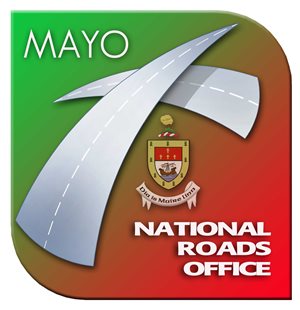Project Description
Mayo County Council has procured the services of Japanese Knotweed Ireland for the Management of Invasive Alien Plant Species (IAPS) on the national road network in County Mayo. The works have been divided into three contract lots for the national roads as follows:
• Lot 1: N59 Westport to Mulranny
• Lot 2: N84, N60, N17, N83 & N5
• Lot 3: N59 (excl. N59 Westport to Mulranny), N58 and N26
The works focus on the eradication of Japanese and other knotweed species and Gunnera tinctoria (Giant rhubarb) within a four-year period 2016 - 2020.
Please find the link below to the National Biodiversity Data Centre where you can find identification sheets for the knotweed species – Japanese, Giant, Himalayan and Bohemian – and Gunnera tinctoria (Giant rhubarb).
www.biodiversityireland.ie/projects/invasive-species/id-guides/id-guides-by-scientific-name
The two species being targeted by these contracts have evolved to survive in Irish soils and climate and have become problematic due to their capacity to vigorously reproduce by massive seed production (Giant rhubarb) or by fragmentation of a rootstock (Japanese knotweed).
Japanese knotweed is problematic because it can seriously damage infrastructure and buildings by growing through weaknesses in concrete, tarmac and other hard surfaces. Both, Japanese knotweed and other knotweed species, and Giant rhubarb, through growing into dense colonies can impede traffic visibility along roadsides or block drainage channels along roadsides causing flooding.
Their ability to spread easily and form dense growth threatens native plants and blocks routes used by wildlife to move around. Both species are now found to be growing profusely along river banks where the water flow aids in the distribution of the plants and their thick growth reduces the capacity of the rivers to carry water, particularly in high flood events. In the winter time both species die back completely leaving banks exposed to erosion.
The contracts will be targeting these species along the national road network in County Mayo and as part of the works each knotweed stand is to be identified by a warning sign similar to one pictured below. The public are asked not to disturb these signs or any of these plants and to contact this office if any stand is not signposted. It is an offence under Regulation 49(2) of the European Communities (Birds and Natural Habitats) Regulations, 2011 (S.I. No. 477 of 2011) for any person who plants, disperses, allows or causes to disperse, spreads or otherwise causes to grow knotweed, gunnera or any of the other invasive plants as listed.
Current Project Phase
The project is currently at Phase 6 (Construction) of the TII Project Management Guidelines.
This project commenced in 2016 with the overall project estimated to be complete by Q3 2020.

